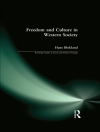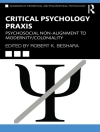1. GENERAL The term "diagnostics" refers to the general theory of diagnosis, not to the study of specific diagnoses but to their general framework. It borrows from different sciences and from different philosophies. Traditionally, the general framework of diagnostics was not distinguished from the framework of medicine. It was not taught in special courses in any systematic way; it was not accorded special attention: students absorbed it intuitively. There is almost no comprehensive study of diagnostics. The instruction in diagnosis provided in medical schools is exclusively specific. Clinical instruction includes (in addition to vital background information, such as anatomy and physiology) specific instruction in nosology, the theory and classification of diseases, and this includes information on diagnoses and prognoses of diverse diseases. What is the cause of the neglect of diagnostics, and of its integrated teaching? The main cause may be the prevalence of the view of diagnostics as part-and- parcel of nosology. In this book nosology is taken as a given, autonomous field of study, which invites almost no comments; we shall freely borrow from it a few important general theses and a few examples. We attempt to integrate here three studies: ll of the way nosology is used in the diagnostic process; of the diagnostic process as a branch of applied ethics; ~ of the diagnostic process as a branch of social science and social technology.
J. Agassi & N. Laor
Diagnosis: Philosophical and Medical Perspectives [PDF ebook]
Diagnosis: Philosophical and Medical Perspectives [PDF ebook]
Buy this ebook and get 1 more FREE!
Language English ● Format PDF ● ISBN 9789400920859 ● Publisher Springer Netherlands ● Published 2012 ● Downloadable 3 times ● Currency EUR ● ID 4682835 ● Copy protection Adobe DRM
Requires a DRM capable ebook reader












